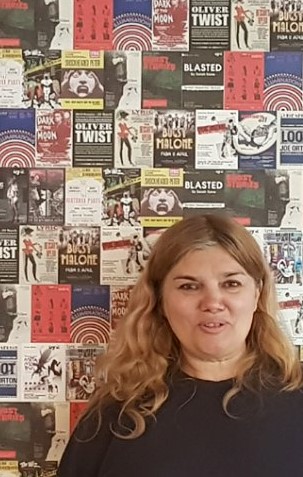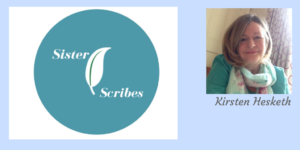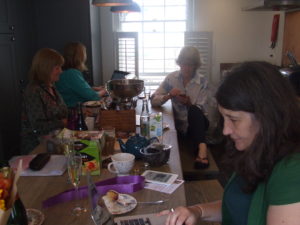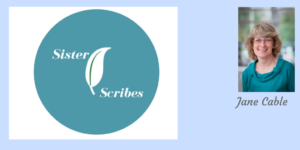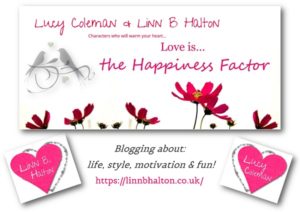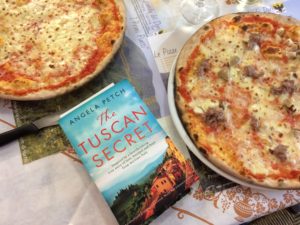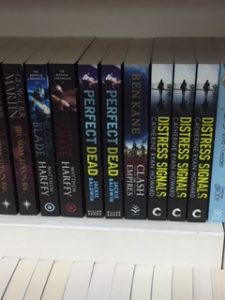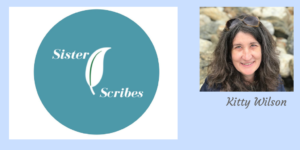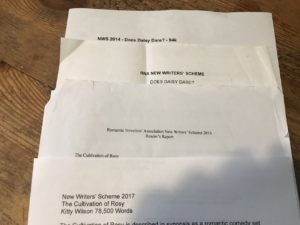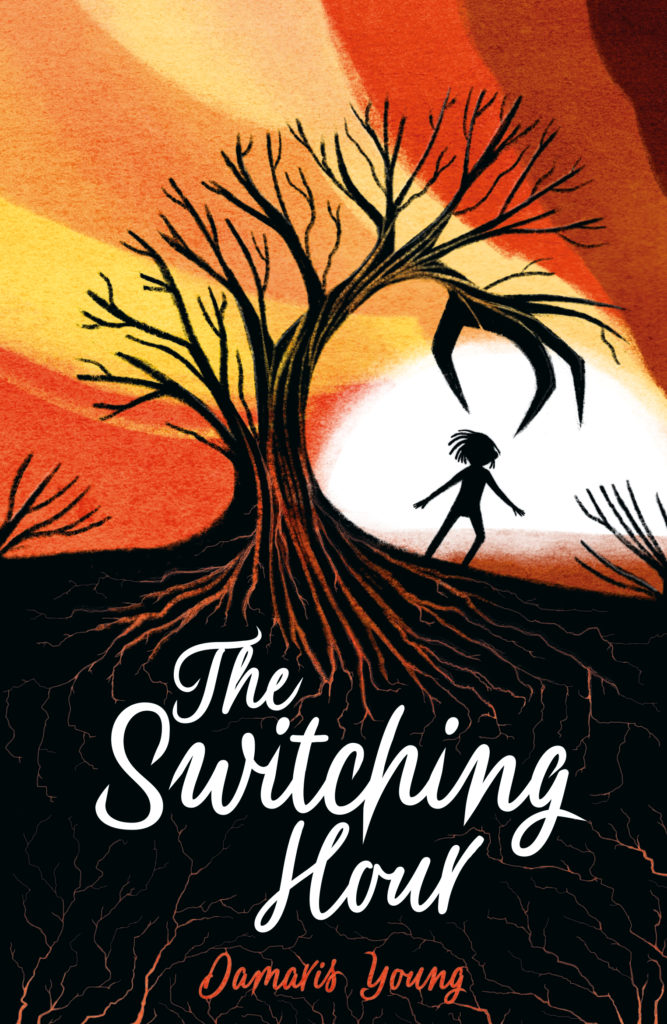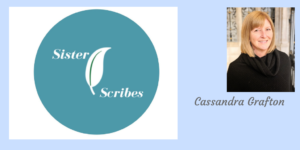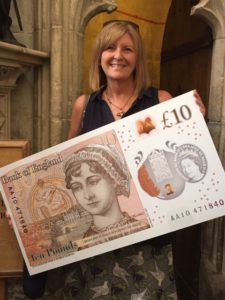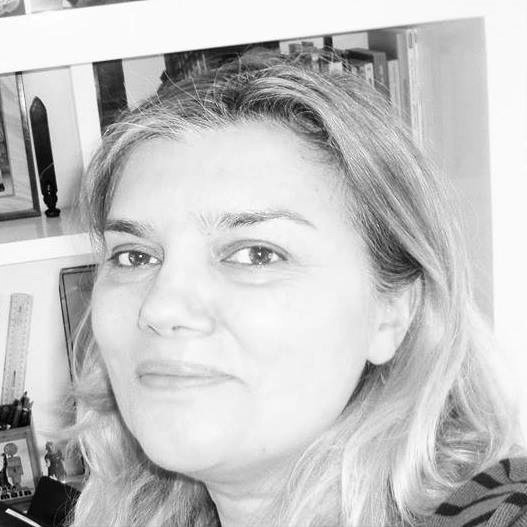 I was born in France but I travelled and lived in many countries as a child and as a teenager. I always had two certainties in life. One was that I wanted to be a creative, artistic person and the other one was that I wanted to live in London. I have now fulfilled both those dreams so I am a happy person. I have tried my hand at different creative mediums. I studied acting in Paris, I sang Opera for a few years and I have done a cinema school. As such I directed a couple of short films and worked on other fellow students’ short films. But writing has always been a constant passion of mine and since in London (nearly 12 years now), I have dedicated myself to playwriting.
I was born in France but I travelled and lived in many countries as a child and as a teenager. I always had two certainties in life. One was that I wanted to be a creative, artistic person and the other one was that I wanted to live in London. I have now fulfilled both those dreams so I am a happy person. I have tried my hand at different creative mediums. I studied acting in Paris, I sang Opera for a few years and I have done a cinema school. As such I directed a couple of short films and worked on other fellow students’ short films. But writing has always been a constant passion of mine and since in London (nearly 12 years now), I have dedicated myself to playwriting.
What you have written past and present?
Over a period of 10 years I have written 8 full length plays. The Beauty of the Cactus Flower talks about the difficulties of being a woman in this age and time. Dear Wallis is about a teenager revolting against an abusive alcoholic mother. My play Sugar talks about the strong bond in between a grandmother and a granddaughter and the healing power of baking. 430 King’s Road, An Urban Odyssey tells the story of the punk movement’s birth, narrated as a Greek Tragedy. Little Wing exposes the difficult relationship between two brothers carrying the burden of a past accident. Womb’s talks about the demolition of buildings and key historic buildings in the Soho Conservation area and the impact this has on the local residents. Catsville tackles the problem of animal hoarding and loss. And my last play is still a work in progress, so I won’t be talking about it today.
What are you promoting now?
I have decided to self-produce and direct one of my plays. Little Wing, the story of the two brothers, is going to be on stage at the Jack Studio Theatre in London from the 7th of April till the 18th of April 2020. I have produced and directed short films and readings before, but this is a very different adventure and I am very excited about it. Hopefully this will be the beginning of a new modus operandi: Part time playwright/part time director.
Do you plan or just write?
Years ago, I used to just write. Not anymore. I miss this very spontaneous way of working because it can produce beautiful and poetic writing but I have noticed that in terms of storyline I would get stuck, sometimes finding myself in a cul-de-sac. I wanted to take my writing to the next level, so I started planning. Now, as far as I am concerned, the work is less spontaneous but much more structured and of course playwriting is about structure, structure and more structure.
What about word count?
For me as a playwright, it is more about number of pages. I know that when I hit the 70 pages mark (knowing that a page of dialogue is more or less 1 minute and half on stage) I have a play that is about 1 hour and 30 minutes long, so then I can relax, before starting a new draft.
How do you do your structure?
The play and the subject matter command it really. My plays are rarely about big dramatic situations and twists, so I am not worrying too much about the climax for instance. Of course there is always a climax, but mine tend to be quite subtle. I tend to favor two act plays. They work well for me. I’ve learned through the years that a scene did not need to be of a certain caliber and length, that it’s all about balance and rhythm. I have studied music for many years and I love the idea that my plays are like scores.
What do you find hard about writing?
Endings! It’s always hard to finish a piece. It’s like a little death and I don’t like that. Also, the time in between two plays is a difficult one for me. I get crippled with doubts, I become a bit crazy. Will I ever be able to put pen on paper again? I have a few coping mechanisms now but it’s still difficult. One thing I don’t have, fingers crossed, is the famous writer’s block.
What do you love about writing?
The craft. It puts me in a zone like nothing else does. Nothing makes me happier than a well-produced page of dialogue. I love this wordsmith business. I fancy myself as a lacemaker, only it’s with words and sentences. Beautifully written pieces can move me to tears (more that the content of the play itself actually). For that reason, I am a big fan of Jean Cocteau, J. M. Barrie, Edmond Rostand and William Shakespeare for instance. I recently reread Hamlet. Everything, absolutely everything you need to know about plays and playwriting is in there. And if I dare say, everything you need to know about life!
Advice for other writers?
Do the 1%, which is present yourself to the page consistently and preferably at the same time of the day, and the universe will do the 99% left, which is inspiration, willingness and the courage to push forward. Drink lots of water, exercise (I’m not very good at that myself) because sitting hours in front of the computer can be hard on the body. If it’s a first draft, don’t indulge in endless rewriting (that’s a tough one). And don’t give up! My production company is called Five Minutes Before the Miracle (short for Don’t give up five minutes before the miracle!) which is a constant reminder that one needs to be perseverant in life. That’s the key.

